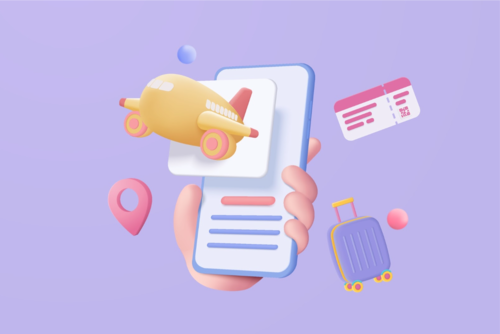It serves as an electronic ticket and boarding pass for flying, Google Maps provider, digital wallet, and a camera. Modern smartphones replace so many other products that they have become genuinely irreplaceable.
If we count all the things we use phones for and add the cost of a modern device, it's clear how valuable a phone can be. The phone doesn’t only have practical value, but can also be an entertainment centre, where you can stream videos and music and play games.
The smartphone is our essential travel companion, and there are a few steps you can take to protect it while travelling.
1. Phone Tracking
Regardless of where you go, turning on the Find My Phone function is essential. Both iOS and Android have a similar service that can send the last location and helps you locate your phone at any moment. In addition, you can play a high-pitch alarm sound or remotely shut down the device.
2. Physical Protection
Although many phones are lost or stolen, owners often damage the phones themselves. To avoid stress when travelling abroad, you should buy extra protection for the device. A sturdy yet flexible case and quality screen protector can elevate some of the risks of the falling phone. It's better to invest in high-end protection than pay the steep price of fixing modern phones' curved OLED screens.
3. Use Common Sense
You don't have to be paranoid about someone stealing your phone, but use common sense and don't put the device in harm's way. For example, avoid having the phone in your back pocket. Ideally, it would help if you placed it in a zipped part of your bag or jacket. If you carry it in the pocket, put it in the front one.
Also, don't leave your phone on the table in a restaurant or other public places. You should have it by your side or stored safely. Unattended phones are easy targets for thieves.
4. Use Security Features
Almost all modern phones have biometric features. Activate your fingerprint scanner, and if you use an iPhone, you can use FaceID. Apple uses a more advanced face recognition system than most Android phones, and they don't have a fingerprint scanner. You can also use a password, PIN or pattern unlock.
This way, you will make it harder for pickpockets to use your phone and give you extra time to find it through the Find My Device feature.
Turn off location tracking apps, and play with your privacy settings, so that you don't announce to the world where you are. For the same security reasons, avoid free and public Wi-Fi spots because they could be crawling with cybercriminals that could easily steal your sensitive data.
5. Keep your phone updated
Your phone should be updated to the latest software version, and so should your apps. Running outdated software opens you up to cyber-attacks. Instead, you could delete apps you're not using and stop unnecessary apps from using your location.
6. Use a VPN
Using a VPN is really recommended especially if connecting to lots of public/WiFi networks. VPN stands for "Virtual Private Network" and describes the opportunity to establish a protected network connection when using public networks. VPNs encrypt your internet traffic and disguise your online identity. This makes it more difficult for third parties to track your activities online and steal data.
7. Get Insurance
Just incase you do have any issues such as breaking your phone or getting it stolen, buy travel gadget insurance before you depart.








